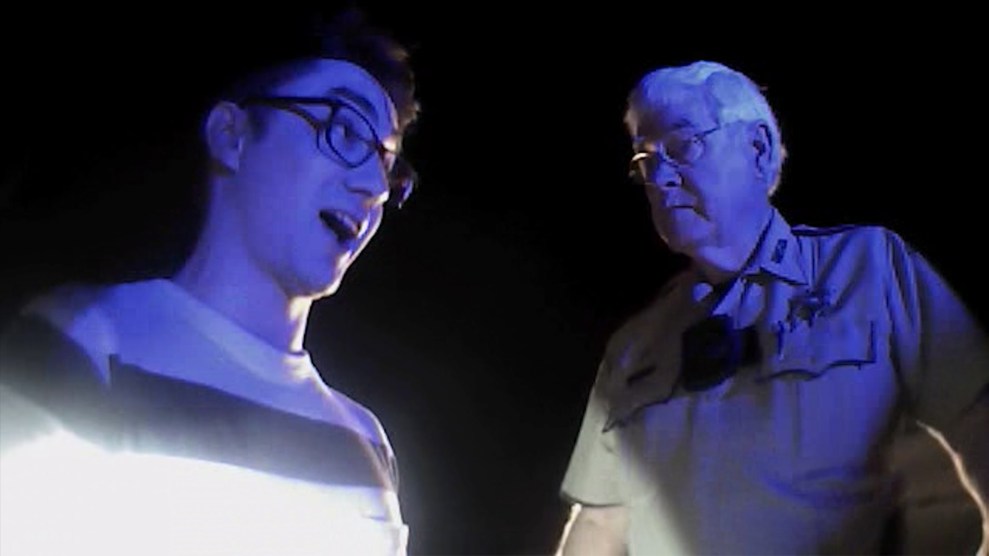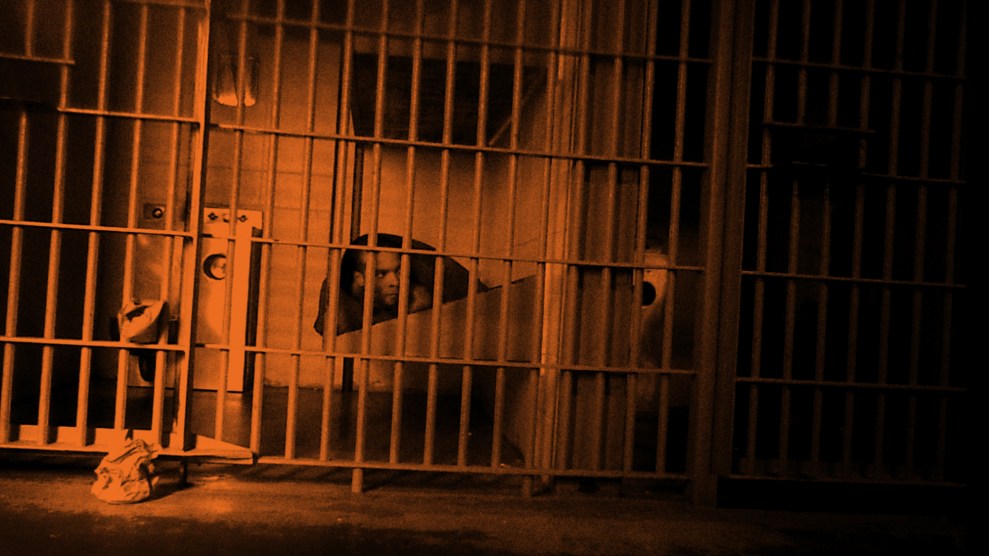In December 2014, Mother Jones senior reporter Shane Bauer started a job as a corrections officer at a Louisiana prison run by the Corrections Corporation of America (CCA), the country’s second-largest private prison company. During his four months on the job, Bauer would witness stabbings, an escape, lockdowns, and an intervention by the state Department of Corrections as the company struggled to maintain control. Read Bauer’s gripping firsthand account here.
Bauer’s investigation is also the subject of a six-part video series produced by Mother Jones senior digital editor James West. In the final episode, West is arrested after filming outside Winn Correctional Center and Bauer quits his prison job.
















